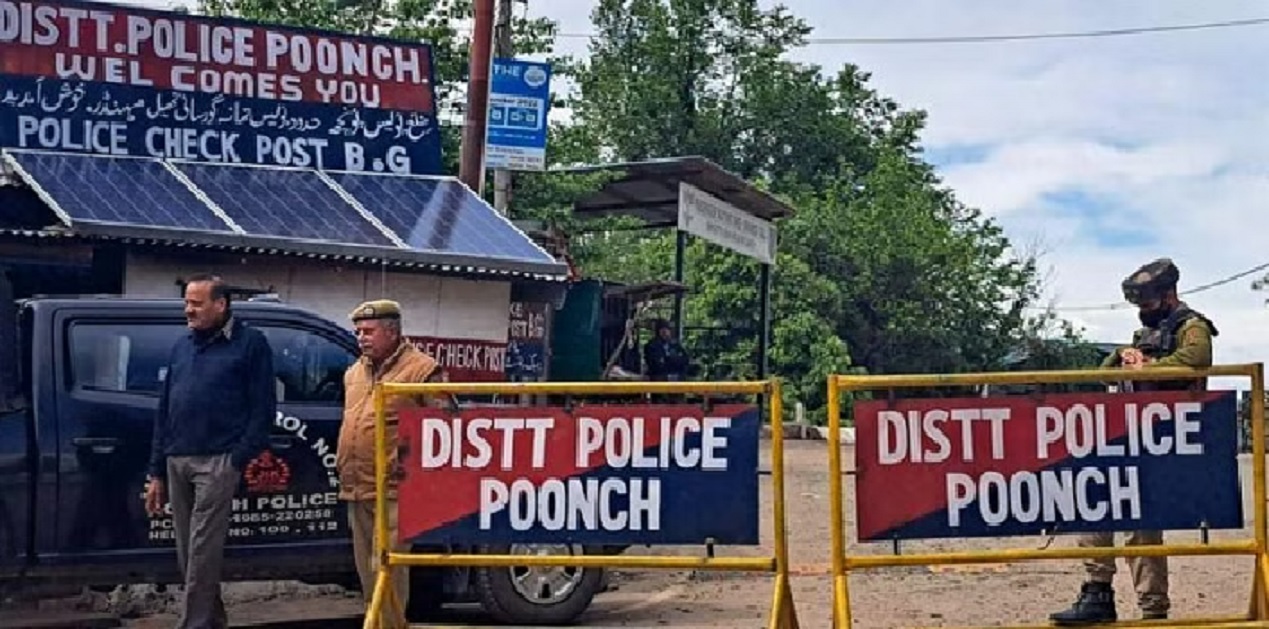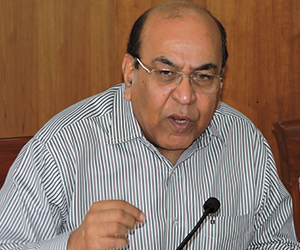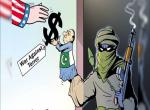On Apr 20 2023 a Rashtriya Rifles truck carrying fruits and refreshments for Iftar (breaking of Ramadan fast) celebrations by a village under its jurisdiction, was ambushed on the Bhimbar Gali (BG) – Poonch road in the area south of the Pir Panjal range. Using preponderance of small arms fire including Chinese steel core bullets and RPG rockets the terrorists (reportedly seven in number) opened fire and gunned down five soldiers who got charred in the burning truck. The image of the burning truck on news channels all over India brought back the specter of terrorism in J&K and shook the Indian public which had increasingly begun to believe that Pakistan in its current low status was a pushover and ignoring it was the better policy. The creeping return of ‘normalcy’ in J&K was lulling the public and signs of a very good tourist season in J&K were bringing forth a perception of security under which such an act was quite unexpected. The reasons that most were ascribing were rational given the dire straits in which Pakistan’s economy exists, its inability to risk a resolute Indian conventional response to a trigger act, the fact that it has only recently exited the FATF grey list, and that it is yet negotiating a 1.2 billion US$ tranche of a promised IMF loan which has many conditionalities. However, we often forget that surprise is a principle of war which applies equally in hybrid war conditions. Pakistan’s sponsored proxies perhaps find they have invested too much in the cause of J&K to allow themselves the luxury of remaining indifferent to the situation which the Indian Government and its agencies are successfully turning around with renewed energy and vigour.
Pakistan’s irrationality is its flagship, an issue which we in India need to be reminded of, quite often. At all such times the Pakistan Government claims the actions in J&K as the handiwork of non-state actors, freedom fighters or disaffected persons within Pakistan. That is a notion long rejected by India whose policy clearly treats all anti India elements (ANEs) as emanating from the State of Pakistan and from under its direct control. Pakistan’s policy of treating the groups that threaten its internal security, such as the Tehreek e Taliban Pakistan (TTP), as enemies and the Indian focussed groups such as Jamat ud Dawa (JuD), as friendlies, flies in the face of the denials that invariably follow such a terrorist strike as the one on the BG-Poonch road.
In reference to the TTP and the India focussed groups I recently wrote in The New Indian Express datelined 18 Apr 2023 – “the Pakistan Army may seek the services of the India-focussed groups to assist it to neutralise the TTP. The payback for that will be a blind eye towards their activity against India. The potential return of sponsored terrorism to India, in one form or the other, remains in the mode of ‘marking time’. Preparing ourselves for it seems inevitable and remains our best option”. The Poonch event reveals much when deeply analyzed. This is being done here in two modes – first the one related to the event itself and second to its impact.
An upcoming tourist season in J&K, a long interval since any major terrorist activity, a part dilution of the counter terror grid south of the Pir Panjal, the fast-approaching dates of two international events – the G20 Tourism meeting in Srinagar in May and the SCO Foreign Ministers meeting in Goa, also in early May, and the ongoing worldwide activities of Khalistan separatists to embarrass India, all combined to give a lethal dose of energy to ANEs to do something spectacular. The result was the Poonch terror attack, an event yet considered low in intensity and thus below the threshold of India’s tolerance. In my perception – ‘one soldier lost is one too many’. In an environment of managing a counter terrorist grid it’s easy to put blame on the government, on the intelligence agencies, on the Army leadership and rank and file but the truth remains that hundred percent grid effectiveness can never be guaranteed, even by the best technologies and the best intelligence; hybrid warfare breeds on this understanding. Blame could be accorded for lapses if any. Strategically, it was evident that a big-ticket act would take place, operationally it could be assessed that it may happen south of the Pir Panjal where the grid is weaker, infiltration is possible with potential to strike the same night and the intent is to revive terrorism.
At the tactical level it is unfair to expect that a time, place and nature of an incident can be pre-determined in the environment of 24 x 7 readiness. There will be faults and mistakes and these are entirely human in nature, of which terrorists and their sponsors are aware. The only take away for the moment should be the fact that it is yet too early to talk of full integration of a population, majority of which has been separatist by intent but is slowly reconciling after the bold decisions of 5 Aug 2019. The Separatist intent is to motivate that segment to retain its anti-India stance. That is as far as the incident is concerned. For every four successes by the State there will be one failure or quasi failure which will allow exploitation by ANEs.
Analysing the impact, the first observation is the fact that whenever India is slated to host big international events a terrorist related incident in J&K is sponsored by Pakistan’s deep state. This has been so repetitive that there is a level of cynicism attached to it. The most spectacular act was the Chittisinghpura massacre of Mar 2000 in sync with President Bill Clinton’s address to Parliament. The state of Pakistan’s internal stability, economy, relationships with third countries or the nature of its polity do not limit or enhance the chances of such an incident. After the surgical strikes (Sep 2016) and Balakote air strike (Feb 2019), we did begin to believe that Pakistan would perhaps not risk conflagration but that was not to be. Thus, with two major international conferences in India in the offing in May 2023 and the warning sounded by the Poonch terror attack should we brace for more. Public perception reveals understandable rage and demand for immediate retribution. That is possible but its effect is not always guaranteed and the potential to resort to all-out conventional war to resolve this permanently has its own dynamics; first the nuclear overhang provides a huge question mark and second a successful resolution by war seems to be getting even more remote after Putin’s disastrous conventional campaign in Ukraine.
In the case of the G20 Tourism meeting at Srinagar slated for 22-24 May 2023 the intent of the Pakistani deep state is clear; cancellation. With Article 370 amended and J&K on the integration march Pakistan would not wish India to showcase its success in establishing near normalcy and attracting international tourism. Refusal to attend the meeting by some countries would be a feather in Pakistan’s cap, although this is unlikely without a major negative event preceding those dates.
It’s the second international event, the SCO Foreign Ministers meeting at Goa on 4-5 May 2023, which Pakistan’s Foreign Minister Bilawal Bhutto has agreed to attend, that provides Pakistan opportunities which on the face of it do not seem to exist. A deeper analysis reveals that a Sino-Pak nexus could be at work within SCO. With the changing world order does China wish to see the exit of India from SCO; hardly likely, as the world order remains uncertain and disruptive actions by China may not be to its advantage. For Pakistan disruptive acts which create any negativity for India is a victory of sorts. Thus, India denying Bilawal Bhutto an invite to the meeting could create legal complications within SCO. On the other hand, Bilawal Bhutto, if attending, could well use the platform to upset the stability of the forum or attempt a larger-than-life image by making anti India statements on Indian soil. It could probably be aimed at getting a leg up for his party (PPP) and the same for the coalition (PDM).
It’s a foreign policy potpourri there with many combinations but it's important not to lose focus at this time from the main issue here; the security of J&K and the prevention of any obstacles in the path of the integration efforts being undertaken by the Government of India. Let us not divide ourselves on issues of perception such as direct immediate kinetic retribution to an act of terror sponsored by Pakistan in J&K. That places great pressure on the government which must have the freedom to think and act in its considered timeframe as it feels best. Knee jerk reactions do not fetch dividends. Lastly, let us also put Pakistan on notice that our response need not always be kinetic. The cyber, economic, social and diplomatic domains offer sufficient scope for disruption of Pakistan’s interests and are awaiting perhaps a nod.
We can observe from the above analysis that a tactical level engagement just inside the LoC has such strategic connotations. Every action and counter-action in this supercharged environment bears the potential of immediate strategic implications. It would be wrong for India’s strategic community to ignore Pakistan as a pushover and focus only on the threat from China; especially in India’s obviously successful attempts to take the higher platform of international significance.
(The paper is the author’s individual scholastic articulation. The author certifies that the article/paper is original in content, unpublished and it has not been submitted for publication/web upload elsewhere, and that the facts and figures quoted are duly referenced, as needed, and are believed to be correct). (The paper does not necessarily represent the organisational stance... More >>
Image Source: https://images.newindianexpress.com/uploads/user/imagelibrary/2023/4/23/w900X450/Poonch.JPG?w=640&dpr=1.0











Post new comment